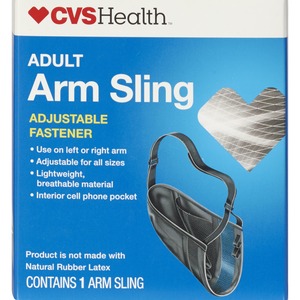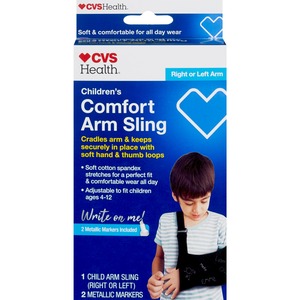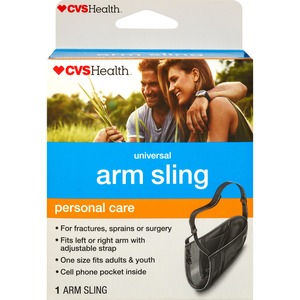Slings & Splints
)
)
)
)
)
Shop more braces & supports
Slings and Splints for Injuries
Manage injuries and speed up your recovery process using slings and splints from CVS. Our range of immobilization devices, such as shoulder slings, helps reduce pain and ensure your limbs remain in a position conducive to healing.
What are the Best Slings & Splints Brands?
When Should You Splint a Finger?
Finger splints are most effective for any injury where movement could cause additional pain or lead to further damage. While it's common to splint finger fractures and dislocated digits, even a mild sprain can benefit from immobilization if movement is impacting your recovery.
If you're unsure what type of injury you have, it's usually fine to apply a splint to support your fingers while you wait to be seen by a doctor. However, never delay medical treatment of severe injuries because fractures or ligament tears in the finger may require surgery or realignment for successful healing.
How Long Should You Wear a Splint?
There's no one-size-fits-all answer to how long you should wear a splint or sling, as it depends on the type of injury and whether you've had surgery. For example, it's common to wear a shoulder sling or brace for up to 6 weeks immediately after a rotator cuff repair; whereas, short-term conditions, such as carpal tunnel, may only need a splint for a few days or weeks.
In general, follow all recommendations suggested by your doctor or surgeon to help your body heal properly. If you're treating a mild injury, such as a finger sprain at home, consider wearing the splint just until the pain is greatly reduced and your finger's range of motion returns.
Should You Wear a Sling to Bed?
Slings and splints can and should be worn to bed in most cases, especially if unintended movement while sleeping could affect your recovery. Doctors often also recommend continuing to wear immobilization devices for carpal tunnel or wrist tendonitis while you rest. It may be okay to loosen your sling or remove it entirely if it's making it difficult for you to sleep, but you should ask your physician first.
)
)
)
)
)
)
)
)